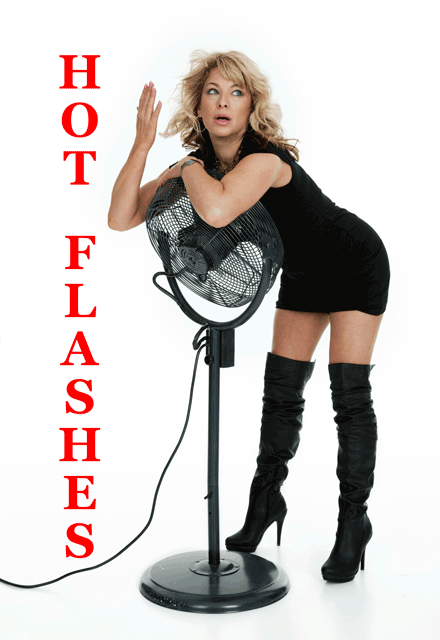Hot Flashes

Understanding Hot Flashes During Menopause
Whew, who turned up the heat? Oh, no one, you’re just getting steamrolled by another hot flash. You aren’t alone. Hot flashes are the most common symptom of menopause and perimenopause (the multi-year lead-up to menopause). After your first few hot flashes, the symptoms should become as familiar as a long-term unwanted houseguest:
A sudden rush of heat throughout your body
Flushing
Sweating
Rapid heartbeat
Chills
What are hot flashes? What causes them? How oh how can you get rid of them and go back to your normal, temperature-controlled life?
What are Hot Flashes?
It’s nice to feel hot…just not like you’re on fire. Also, the sweating and beet-red face aren’t exactly welcomed in the middle of your company-wide meeting. What is happening?
Hot flashes are one of the many symptoms of menopause and perimenopause. Every woman experiences these symptoms differently, and they are likely to change in frequency and severity over time. Some lucky souls only experience hot flashes for a year or less, while other women have to deal with them for five years, six years, or even indefinitely. Additionally, hot flashes may come at little as once a day or as much as once an hour.
What Causes Hot Flashes?
Your hormones are chemical messengers that help regulate all of the systems in your body. During perimenopause and menopause, your estrogen levels fluctuate. As a result many of the systems in your body get confused.
One of those systems is a region of your brain called the hypothalamus. The hypothalamus is your body’s natural thermostat. When your estrogen levels go wonky, your hypothalamus may crank up your internal furnace, or send a message to your sweat glands to turn on the taps. It may even dilute your blood vessels to help you cool, which causes your heart to start galloping in your chest.
Now that you know a little bit about what’s going on inside your body, how can you cool down hot flashes or stop them in their tracks?
What to Do About Hot Flashes
It is nearly impossible to avoid hot flashes without the use of hormone replacement therapy (HRT) to help stabilize your hormonal levels. However, if you’re not ready to try HRT yet, there are ways to manage your hot flashes:
Identify and Eliminate Triggers – Research suggests that certain things may trigger hot flashes, including stress, caffeine, alcohol, tobacco, and spicy foods. Keep a mood and food diary and note the occurrence of hot flashes. Do you see a pattern?
Exercise –Exercise may help the body better regulate its temperature and lessen the instances of hot flashes. Plus, exercise is good for you anyway. Lace up those sneakers!
Talk to Your Doctor – If hot flashes are negatively affecting your quality of life, it’s time to schedule an appointment with an OB-GYN who specializes in treating perimenopausal and menopausal women for a discussion about hormone replacement therapy.
HRT has worked wonders in lessening or even eliminating hot flashes in my patients. Additionally, it can also drastically reduce other unpleasant symptoms of menopause, including night sweats and vaginal dryness. It isn’t the right treatment for everyone, so speak with your doctor to find out if you are a good candidate.
In the meantime, learn more about night sweats, perimenopause, and menopause.
Stefanie Mikulics, MD
1050 Las Tablas Road
Suite 2
Templeton, CA 93465
805-434-9441


